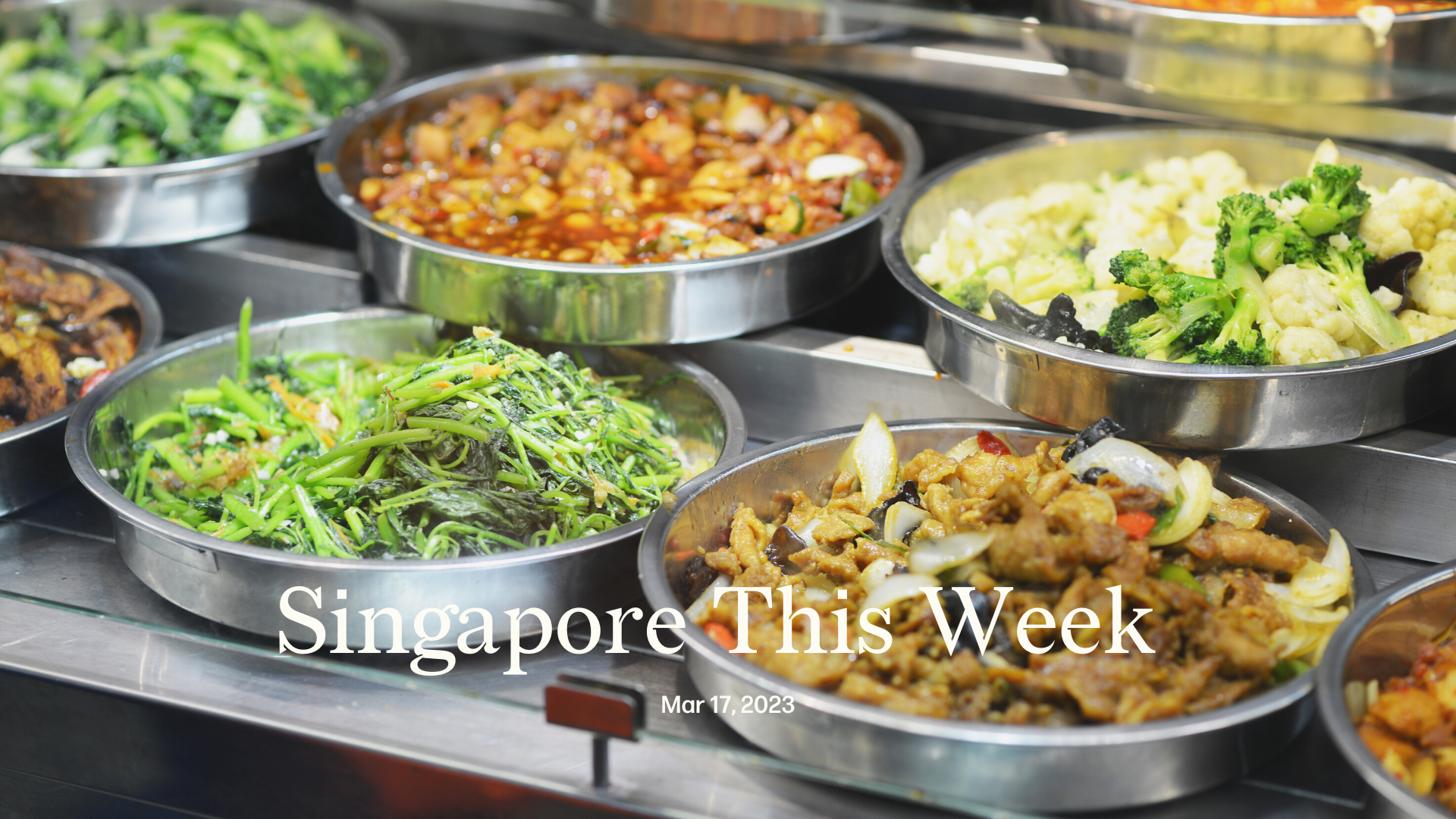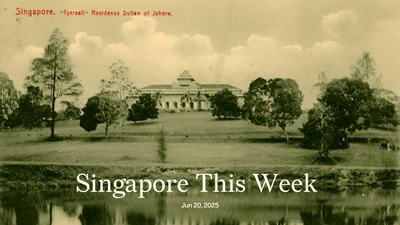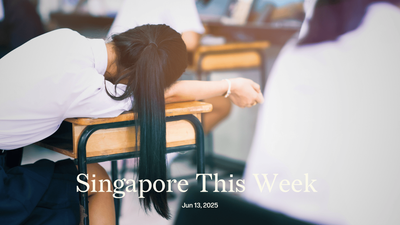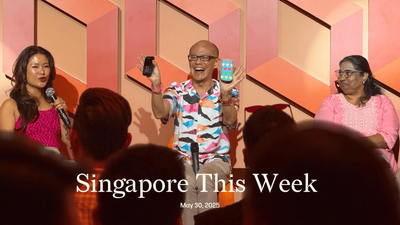Politics: The emperor is far away
Critics of Singapore reside in Hong Kong, and critics of Beijing reside in Singapore. It’s an odd arrangement that seems to work for both governments. Following the long-expected confirmation of Xi Jinping’s unprecedented third term in power, Lee Hsien Loong, Singapore’s prime minister, and Halimah Yacob, its president, sent their congratulations to him. The Straits Times (ST), the government-controlled paper, called on non-Singaporeans to deliver the harsh words. Alfred Wu, from Hong Kong and now at the Lee Kuan Yew School of Public Policy, said that this and other party reforms would further erode the “parallel tracks” of the party and state that have served China. Lee Jonghyuk, from South Korea and now at the S. Rajaratnam School of International Studies, told ST that “The potential pitfalls [of blurring the lines] include the erosion of professionalism in government organisations…[It] also prevents entrepreneurship, creativity and autonomy of the government organisations—which sometimes should implement policies beyond the roles of traditional bureaucracy.” Words of caution for China or Singapore? Lee Hsien Loong is now in his fifth term, having delayed his descent. Meanwhile, the blurring of lines between party and state has long been practised here. Lawrence Wong, prime-minister-in-waiting, was once an Administrative Service officer, following in a long tradition of civil servants to have made the supposedly taboo switch. Foreign academics like Lee Jonghyuk and Alfred Wu have long shied away from commenting on local affairs. Yet if we allowed them to, Singapore would benefit, and they might feel more invested in the place where they reside.
Society: Not-so-economical rice
Netizens disagreed with the results of an Institute of Policy Studies (IPS) study, which found that many food stalls did not raise prices between late last year and this year. The study, which looked at hawker centres, food courts and kopitiams, found that of those who did, the majority increased prices only by a small margin not exceeding 30 cents. “It’s no way close to reality,” said one social media user. “Is this research legit?” IPS surveyed menu prices of items like iced milo, chicken rice and prata from 829 establishments late last year. After the increase in the Goods and Services Tax (GST) from seven to eight percent on January 1st, IPS revisited 50 of the original 829 sites. Much fewer, IPS said, because of manpower and time constraints, and stall closures. Why the discrepancy between the study’s findings and Singaporeans’ experiences? Menu prices may not have been updated this year. Also, the study did not account for “shrinkification”, by which portions get smaller while prices remain the same. Both consumers and stall owners find themselves in a tough spot. On the one hand, wages aren’t keeping up with the rising cost of living, and so hawker fare is less and less affordable for many. On the other hand, stall owners feel compelled to raise prices because of increases in rents and “inflationary pressures” that “[threaten their] income and job security.” Ahead of elections or around controversial policy changes, the government-funded IPS sometimes trots out survey results or papers to add a veneer of academic respectability to political messaging. Seems like it’s getting harder to convince Singaporeans.
Society: Singapore Youth for Climate Action refutes government opportunism
Singapore is a “developing country”, Grace Fu, the minister for sustainability and the environment, declared on February 24th, over 20 years after Lee Kuan Yew announced our arrival into the “first world”. She was arguing, given our supposedly short industrial history, that Singapore may seek to be a claimant of—rather than a contributor to—global “loss and damage” (L&D) funds. L&D can be thought of as climate reparations; it responds to the injustice of the climate crisis, namely, how nations least responsible are often the most vulnerable to its impacts. While self-interest is important for sovereign states, Singapore’s audacity here is a bit much. On a per capita basis, Singaporeans are some of the world’s wealthiest—and have some of its largest ecological footprints. Earlier this week, climate advocacy group Singapore Youth for Climate Action put out a statement renouncing the approach, arguing that Singapore shouldn’t imply that it’s as vulnerable as much poorer and less developed countries. “[That] is not only inaccurate but also deeply unjust; every dollar we take is another dollar our neighbours lose…It defeats the purpose of this new finance facility altogether.” Consider: in 2022, and in Pakistan alone, estimates suggest that 32 million people were displaced by flooding intensified by climate change. That’s nearly six times the Republic’s population. Channelling money to Pakistan and other (actual) developing countries is in Singapore’s interest. Climate experts have pointed out that greater adaptive capacities in vulnerable countries could translate into a more stable environment for global trade. Last November, after the fund was agreed upon at the Conference of Parties 27, Fu reaffirmed Singapore’s commitment to multilateralism, saying it will participate in the “right spirit of cooperation and collaboration.” Few would have expected her to lump Singapore in not with Switzerland but Somalia.
Society: It's a wild, wild world
After 30 years of surveying the Central Catchment Nature Reserve, scientists last August found the Encheloclarias kelioides, an elusive air-breathing catfish species. Nearly 20 more have since been sighted in the secluded Nee Soon Swamp Forest. Initially thought to be found only in peat swamps in eastern Peninsular Malaysia and central Sumatra, Indonesia, the little understood catfish was last assessed as “critically endangered (possibly extinct)” by the International Union for Conservation of Nature (IUCN). Researchers have now proposed that it be reclassified as “critically endangered”. Over at the Botanic Gardens, a great slaty woodpecker (the largest species of woodpecker) drew a flock of bird watchers, including a couple who left their wedding celebrations to take photos of it. Rarely seen in Singapore—this is only the fourth recorded sighting—it’s listed as globally “vulnerable” on the IUCN’s Red List of Threatened Species. It apparently disappeared, along with seven other woodpecker species, in the 1950s, and was considered extinct by local birders until a sighting in 2018. Now it can also be admired in a wedding album.
Society: How humans harm and help
Since 2020, birds have made up almost 75 percent of the nearly 1,000 animals caught in glue traps (meant for rodents and insects), including protected species like raptors and kingfishers. The others (we know of) were creatures such as toads and squirrels. Glue traps are nasty and ineffective contraptions—those stuck often die from starvation, dehydration and suffocation. Escapees frequently emerge with terrible injuries. Some countries like Germany and New Zealand have banned them and so should we, argue animal welfare groups. Less harmful alternatives, like a lethal snap trap, or a live trap and release, are still problematic. Ultimately, prevention and exclusion methods are still the best way to avoid attracting pests. In better news, whatever you might think about keeping animals in captivity, at least the residents of Jurong Bird Park have an enviable healthcare plan. Six senior penguins have fully recovered after undergoing cataract surgeries. Three of them, king penguins, had their original lenses replaced with custom-made intraocular lens implants, a procedure believed to be a world-first for penguins. “We have observed an increase in responsiveness and activity levels in the penguins,” said Ellen Rasidi, a Mandai Wildlife Group veterinarian. Surely, a sight for sore eyes.
Internet culture: Malaysia’s successes are ours
Michelle Yeoh became the first ethnic Asian woman to win an Oscar for Best Actress this past weekend. Some Singaporeans have found ways to link her success to ours. This includes the Empress of Facebook, director of Temasek Trust, and wife of the prime minister, Ho Ching. On Tuesday, Ho praised the actress’s accomplishments while lauding the achievements of the “Yeohs of Ipoh”, the prominent family to which Yeoh, a Miss Malaysia 1983 winner, belongs. In particular, Ho mentions the late Yeoh Ghim Seng who served as the speaker of Singapore’s Parliament between 1970 and 1988. Funnily enough, other members of the Yeoh clan have weighed in on Ho’s post, thanking her for the mention. This includes banker Yeoh Choo Guan and lawyer Yeoh Lian Chuan, who was the recipient of a government clarification on a Facebook post he made refuting a minister’s comments on the drawdown of reserves. Of course, the most prominent family member is Yeoh Lam Keong, ex-GIC chief economist and two-time beneficiary of a POFMA (Protection from Online Falsehoods and Manipulation Act) notice. YLK responded humorously: by pointing out that Ho forgot to mention “the fishermen” and attaching two photos of himself on a fishing expedition. In Ho’s defence, her exclusion of the politically sensitive Yeohs may be unintentional. The source she linked in her post isn’t exactly known for its journalistic prestige: lowyet.net’s forum is Malaysia’s equivalent of our very own HardwareZone.
Arts: Singapore’s first Booker nominee
Jeremy Tiang has been nominated for the International Booker Prize, for his translation of Zou Jingzhi’s Ninth Building, a collection of vignettes inspired by the author’s experiences during the Cultural Revolution. Tiang previously served as a judge for the same prize in 2022. Tiang has already received the PEN Translates award for their translations of Strange Beasts of China by Yan Ge (2018) and Cocoon by Zhang Yueran (2021). Closer to home, Tiang won the independently administered Singapore Literature Prize for their novel State of Emergency, in 2018. State of Emergency previously made the news after its National Arts Council grant was partially withdrawn due to its content. While statements from the then Ministry of Culture, Community and Youth were vague and only mentioned that the “book deviated from the original proposal”, Tiang and the larger literary community have reason to believe that the withdrawal was due to the novel’s exploration of leftist movements in Singapore’s history. At the time of writing, Singapore’s most prestigious accolade still eludes Tiang—a mention on Ho Ching’s Facebook page.
History weekly by Faris Joraimi
The National Heritage Board (NHB) wants the Padang and its surrounding buildings such as the City Hall (completed 1929)—what it calls the “Padang Civic Ensemble”—recognised as our second UNESCO World Heritage Site, after the Singapore Botanic Gardens. The rectangular lawn whose name means “field” in Malay was chosen for being “an outstanding example of a British colonial civic square in the tropics.” The Padang was where: the 1819 Treaty was signed; the British received the official surrender from Japanese forces in 1945; and the People’s Action Party delivered its first victory speeches in 1959. Archaeological excavations at Empress Place tie the site to our island’s deeper past. David Marshall, Singapore’s first chief minister (1955-56), held his rousing rallies there, proclaiming freedom in the colony’s solid heart of stone. In NHB’s words, the Padang “bears testament to the historically widespread phenomenon of decolonisation.” But Jean Wee, NHB’s director of preservation of sites and monuments, argued that the site must still be framed as part of global British imperialism to have worldwide significance and fulfil UNESCO’s criteria. So while the bid admits some historical nuance, it ultimately feels like a classic instance of Singapore instrumentalising its colonial heritage for international prestige. When asked if the bid would glorify colonialism, Wee retorted: “We can’t change the fact that historically, we were a British colony” and that “it was from that point we transitioned as a colony to a nation-state.” History, in this scripting, can only ever move in a single direction: every “point” on that timeline is worth commemorating as long as it serves the nation-state’s journey of self-realisation. Of course no one denies that colonialism happened. What matters is how that past is remembered and told. That we choose to honour a site of our people’s struggles for freedom, fairness, and equality by also appealing to the system they fought, says a lot about our values today—or lack thereof.
Tech: Luckin is brewing
Beleaguered Chinese coffee chain, Luckin Coffee, announced its plans to open up locations in Singapore in March this year. Once a darling of the venture capital scene in China, the tech-centric coffee chain raised US$645m (S$866m) before going public on NASDAQ in mid-2019, where it traded at a valuation of more than $4bn (S$5.38bn). From the beginning, customers had to order coffees through their Luckin mobile app—a strategy that was said to improve retention (through direct marketing), enhance supply chain efficiencies, and lower operating costs (by negating the need for cashiers). That year, its over 4,500 stores meant it overtook Starbucks (4,100) as China’s largest coffee chain. However, the ‘Starbucks of China’ ran out of luck soon after. In February 2020, short-seller Muddy Waters Research cited an anonymous report that questioned the firm’s financials and shorted the stock. After two months, Luckin’s own internal investigations revealed that its chief operating officer had fabricated sales transactions. This led to a crash in its stock price and a delisting. It has since re-emerged after a restructuring and its latest expansion into Singapore seems to be part of something larger, perhaps a re-listing. Today, Luckin Coffee has more than 8,100 stores in China. Yet, with existing venture-backed coffee chains such as Flash Coffee struggling, it might soon run out of luck again.
Tech: An invite-only bank by Sea Group
Following Sea Group’s surprise performance in the latest quarter, the tech giant has quietly launched its digital bank, MariBank, on an invite-only basis. Similar to its competitor Grab, Sea obtained a full digital bank licence in Singapore which enables it to serve both retail and corporate customers. The Grab-Singtel consortium had also launched its digibank offering last August on an invite-only basis. The digibank space is highly competitive with other players, such as Ant Group’s ANEXT and Green Link Digital Bank, serving non-retail clients. And then there is Trust Bank by Standard Chartered and the Fairprice Group. MariBank’s savings account offers a compelling interest rate of 2.5 percent per year without any minimum deposit, monthly salary credit requirement or minimum spend. However, it's unclear whether MariBank will be able to do it on a sustained basis with a positive net interest margin. And it’s also uncertain whether digibanks can provide a sufficiently differentiated experience and value proposition for the younger, tech-savvy demographic it claims to serve.
If you enjoy Jom’s work, do get a paid subscription today to support independent journalism in Singapore.








